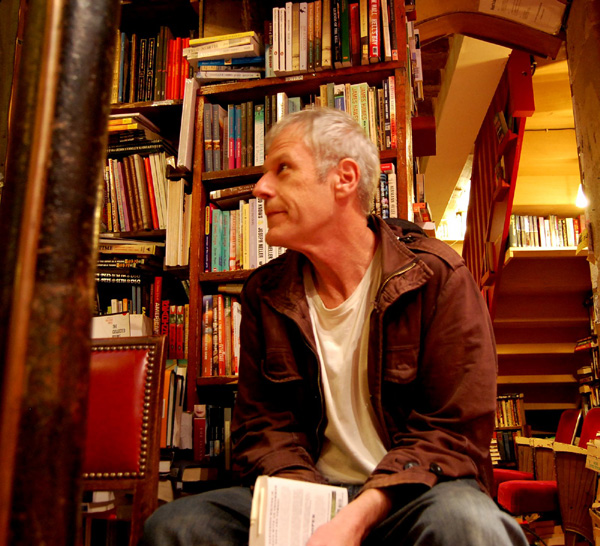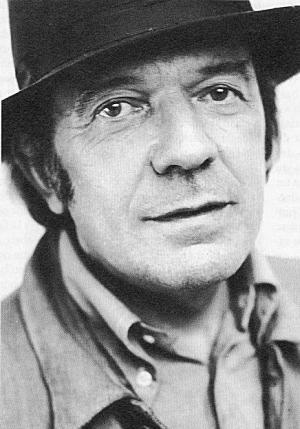
Shocked with these lamentable sounds, and dreading he knew not what, he advanced hastily,–but what a sight for a father’s eyes!–he beheld his child dashed to pieces, and almost buried under an enormous helmet, an hundred times more large than any casque ever made for human being, and shaded with a proportionable quantity of black feathers.
– from The Castle of Otranto by Horace Walpole
Have a good Halloween.
This was the first time I had heard about my great stupidity. And I was quite surprised, as it had not occurred to me. But certainly it did account for many things. And it always followed a pummeling, when the world blurred into gray edges and my ears throbbed and darted inside. I would wander without destination often, in the wake of beatings. I would believe I was a floating shadow riding on puffs of air, my toes barely skimming the ground.
-from My Happy Life by Lydia Millet
Derrida & Animals

As I was saying to Darby recently, after he commented over at my spot about the frequency of my posting artworks of human-animal hybridity, in academia right now Animals are all the rage.
A recent edition of PMLA focused on Animal Studies, and a glance at the Penn CFP page reveals a growing number of conferences on the topic of Animals in literature, art, politics, etc.
Further proof of this growing trend can be seen in the rise of websites like The Inhumanities, as well as the swarm of books being published on the topic, including this new book of Derrida’s lectures being release on November 1st by University of Chicago Press:
The Beast and the Sovereign, Volume 1 launches the series with Derrida’s exploration of the persistent association of bestiality or animality with sovereignty. In this seminar from 2001–2002, Derrida continues his deconstruction of the traditional determinations of the human. The beast and the sovereign are connected, he contends, because neither animals nor kings are subject to the law—the sovereign stands above it, while the beast falls outside the law from below. He then traces this association through an astonishing array of texts, including La Fontaine’s fable “The Wolf and the Lamb,” Hobbes’s biblical sea monster in Leviathan, D. H. Lawrence’s poem “Snake,” Machiavelli’s Prince with its elaborate comparison of princes and foxes, a historical account of Louis XIV attending an elephant autopsy, and Rousseau’s evocation of werewolves in The Social Contract.
Another dead person whose work I miss

Just let me sleep, woman!
So I’m making my way through this forthcoming Raymond Carver biography, and really enjoying reading it alongside Where I’m Calling From, the stories in which, I think, are arranged chronologically. It’s interesting to see how Carver’s ideas and fears manifest themselves on the page. I hadn’t read Carver for a few years, so most of the stories seem pretty fresh. Also, I’m really amused by his dialogue, which could’ve been taken from my own life. For instance, in “The Student’s Wife,” Carver writes:
“I’d like us both just to live a good honest life without having to worry about money and bills and things like that. You’re asleep,” she said.
“I’m not,” he said.
“I can’t think of anything else. You go now. Tell me what you’d like.”
“I don’t know. Lots of things,” he mumbled.
Well, tell me. We’re just talking, aren’t we?”
“I wish you’d leave me along, Nan.” He turned over to his side of the bed again and let his arm rest off the edge. She turned too and pressed against him.
“Mike?”
“Jesus,” he said. Then: “All right. Let me stretch my legs a minute, then I’ll wake up.”
In a while she said, “Mike? Are you asleep?” She shook his shoulder gently, but there was no response.
I mean, who hasn’t been there? Sometimes I just want to sleep and dream of sexy female robots and stealing a car and driving it down to Miami and joining the Hurricanes (a team I don’t even like, which makes the dream weirder) and picking off not one but two errantly thrown passes over the middle and returning them for touchdowns against hated rival Notre Dame, and I guess just not waking up to talk about life and stuff. Too much to ask at this hour goddammit?
But this post actually wasn’t about Carver or my aborted dreams of football glory. It was about the late John Leonard, who died late last year from lung cancer at the age of 69. Leonard’s book review section in Harper’s was always the first thing I turned to when I’d get the magazine. Guy always had quirky, wide-ranging book choices, and his reviews were beautifully written in their own right. Benjamin Moser has since taken over for Leonard, and I’m just having a really hard time getting excited for his New Books findings. It’s just not rocking. Anyone have any favorite reviewers?
Fernando Pessoa

Man shouldn’t be able to see his own face – there’s nothing more sinister. Nature gave him the gift of not being able to see it, and of not being able to stare into his own eyes.
Only in the water of rivers and ponds could he look at his face. And the very posture he had to assume was symbolic. He had to bend over, stoop down, to commit the ignominy of beholding himself.
The inventor of the mirror poisoned the human heart.
–from The Book of Disquiet
Paragraphs of New Senses (7): Dennis Cooper

Nate lies by the road. It weaves off into the mountains out there. And it reeks. He’s been here for hours, partly obscured by the brush, awaiting the right car to pass, and a nice passerby. Someone in elegant clothes, whom he can fleece. God forgive him, he’s broke. The sun’s creepy, a hard piece of scalding red shit that has no consciousness of its own, so Nate can’t tell it anything real like, Go away. Everything should have a mind. So he could communicate with it. So he could say, Grass, get taller and cover me better. Or… School bus, stop here, right this second, and dump all your passengers out on the road so I can fuck, rob, or kill them. He wouldn’t mind if the bus said, No way, you’re too fucking lowly a jerk to waste time on. Or if the sun said, Oh go ahead and burn up, you asshole. Or if he could say to this road, Hey, can you glisten a little? ‘Cos that would look so unbelievable. And it would glisten for Nate, to be nice. Then it might say, Okay, now you walk on my surface awhile. And Nate would, even if it got him arrested. ‘Cos the road is so peaceful or something. Anyway, everything understanding everything. People’s guns saying, No, not him, asshole, kill him. And Nate’s pistol would swing itself around and do the shooting for him. And he’d just go, Well, hey, I didn’t make the decision. And his gun would go, Yeah, I made the fucking decision. And what would the cops do? Melt down the gun? Well, they could. And maybe they would be sad, ‘cos if the gun had a mind, Nate just might be attached to it. Shit, he can’t win. There’s no way the world’s ever gonna be totally perfect, unless nothing and no one had minds. If everyone just kind of lay there, only moving around when the wind knocked them up, or if the rain got too hard, or if there was a flood. Natural things. Nate would lie in the grass here for days, weeks, spacing out, then some storm would move him twenty feet thtat way, and his world would change, and he’d get to know new blades of grass and new dirt and new flies or whatever. He wouldn’t die, just change. Dry out, get wet, smell one way, smell another way. No boredom, no love, no fear, no being broke, no Leon, no… nothing. Maybe that’s what will happen at world’s end, after one of the millions of viruses sneaks in folks’ bodies, and no one, no matter how total a genius, can cure them. They’ll just… collapse where they are, and never see, feel, or do anything, and eventually everyone will lose sight of each other’s existence, and just become… what? Lumps of nature. In Nate’s case, a small, smelly thing lying out in some brush. A stupid thing drifting through history, no worse or better than trees or the bugs or his gun. Oh, he longs for that day. But until then he just loves this road.
– Period, page 16-17
This seems calming, and not calming
From the archives at Dalkey Archive, John O’Brien interviews Coleman Dowell, who eventually threw himself out of the window of his 15th floor apartment:
COLEMAN DOWELL: There are writers who can tell you precisely what they do, but I am not one of them. There was a lecture E. M. Forster delivered called “Inspiration” which concerns the mind turning turtle. I put a piece of paper in the typewriter and, if I’m
going to write well, the mind turns turtle. Out comes the person at the typewriter, the writer, whom I do not carry away from the typewriter. I talk about writing with other writers in this sort of desultory manner but I’m not really eager to do it. So there is that thing that belongs to the typewriter and the piece of paper. This turning turtle occurs, but as Forster says in his lecture, this one can also produce gibberish. This element of mystery is there for me. I’m not very articulate about writing, as you can see. If I could sit here and tell you everything that happens and why I do it—aside from a compulsion and an absolute love for writing, I don’t think I’d write. I don’t think I’d do it all because it’s a lonesome thing. When I start a new book I feel as though I’m going into a cave that I can’t come out of until the book is finished. I have a routine of getting to bed early and then getting up early so that I’m at the typewriter by no later than seven. It’s very lonesome, and nobody is really willing to share while you’re going along and writing.
I can tell you why anything in my books is there and why something happened, but aside from that, I probably can talk about somebody else’s writing better than I can my own. When a work is finished, I can talk with you about it, every section and every word, but that is when it’s finished. At the time I am writing, I can’t talk because the process is not known to me. For me, the writing is enough. I don’t need to discuss it. When I write, I want to look at something as closely as I can. I have old notes stuck in my journal. One of them is very old now, it’s from about 1968, and it says, “Examine the essence of shunning.” That interested me at the time, and some day I might write about it. But that’s the way it comes about; I said that I want to look at that as closely as I can.
Deleuze on Style for Style’s Sake

“According to Deleuze style is inextricably intertwined with affirmation and ethics. If we think of style as the style of some subject, ground or concept then we subordinate the event of style to one of its effects. We proceed as though our actions (of speech, thought or movement) were reactions to some determining ground. If we affirm style as style, however, we have no foundation upon which our events are grounded. We would be confronted with the groundlessness of events. And if no event could be given privalege over, or ground, any other event then there could never be a proper style (a style that was adequate or accurate). Rather, the challenge would be to affirm the difference of style eternally. If style were taken to be the style of some point of view it would lose its force as style.”
-from Claire Colebrook’s essay “Inhuman Irony: The Event of the Postmodern” included in the collection Deleuze and Literature (Edinburgh University Press, 2000)
from Tripticks
Not to be outdone I suggested we all strip and rub one anothers’ bodies with some very special oil I happened to have. My wife immediately muttered ‘sacrilege’, and abruptly turned away from me for the rest of the evening. Partly because of her attitude and my own position in all this I started looking around at the other women. There wasn’t really much choice. I chose about the youngest, a girl who still had the air of highschool around her. I really wasn’t turned on by her, however, she seemed to respond amazingly quickly in the candlelit room to my hands which at first I only dared put through her long dark hair. I whispered that we should go into another room. But as we were sidling out of the door, my wife, who lay naked on the altar, incense it seemed wafting from her body, called out ‘if you want to do anything do it here only don’t bug my trip.’ I had the feeling that other than the potions Nightripper had handed out he had also passed around something else. The scene resembled a Bosch vision of hell. Some women were staring, some were unusually happy, some were sick, others were screaming, and some said the walls were moving. These days if one escapes being hijacked in an airplane, mugged in the street, or sniped at by a man gone berserk, one apparently still runs the risk of getting accidentally zonked by the hors d’oeuvres at a friendly neighbourhood cocktail party. As soon as I thought this I began hallucinating, and ultimately freaked out, overturning the altar, calling Nightripper my motherfucking father. Apparently everyone soon left, except the girl, who my wife asked to stay, hoping between them they could bring me through. I remember there was a point when I didn’t want to come down, but remain on an edge that appeared to touch upon a very thin line between life and death, and such power! I felt I was capable of anything, by merely putting my hand out things would fall or rise. I was Satan with God as my servant.
– Ann Quin, Tripticks, pg. 61-62
GIANT Excerpt: from The Dance of No Hard Feelings by Mark Bibbins (#5)
you don’t need me to tell you we needed you and you were not nothing to us. Mimicking into stupor was a better guess at how to play ourselves–even I was on TV so I shouldn’t have to recount that either. We tried to say heathen but our mouths ended up spouting a music better suited to driving through a star-tarted desert. Creepy cowboy got an era, crossword lothario got years, but we do we call this shit? Might makes maybe, to put it mildly. Branches of science we haven’t invented or gotten around to suppressing would alter the hideous tides, keep us from killing what keeps us alive. The whole world, to the extent that we can name such an invention, we have sliced open–I never did make it to physics class but with luck it’s not too late, the last so slow to leave so leave on all the light.
All this week, HTMLGiant posted poems from The Dance of No Hard Feelings (Copper Canyon) Mark Bibbins’s eagerly and long-awaited followup collection to 2003’s Sky Lounge. Day #1 is here. Day #2 is here. Day #3 is here. Day #4 is here.
